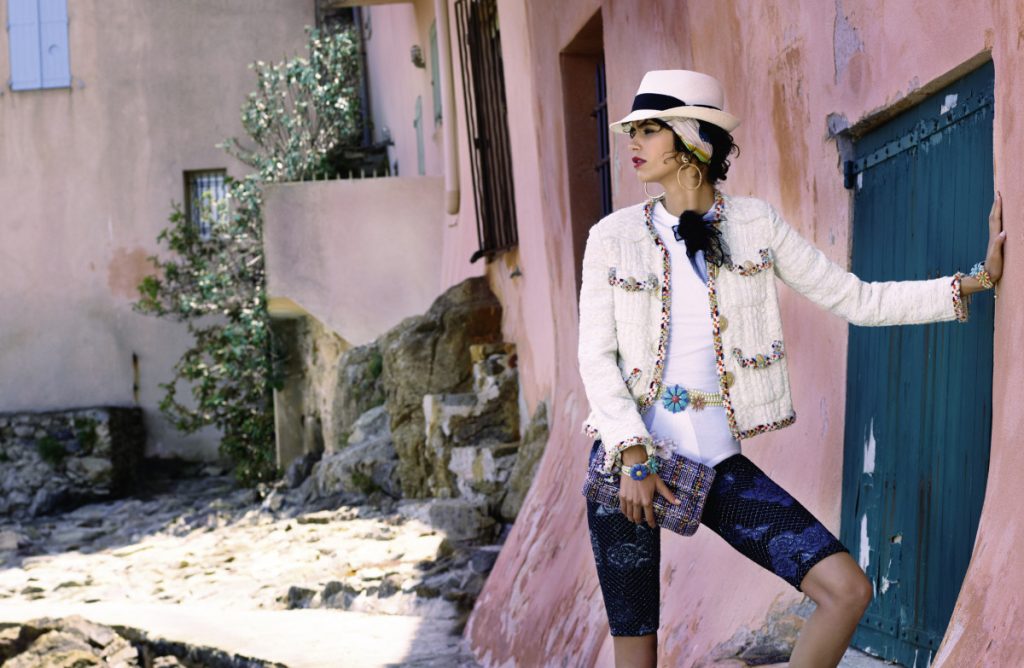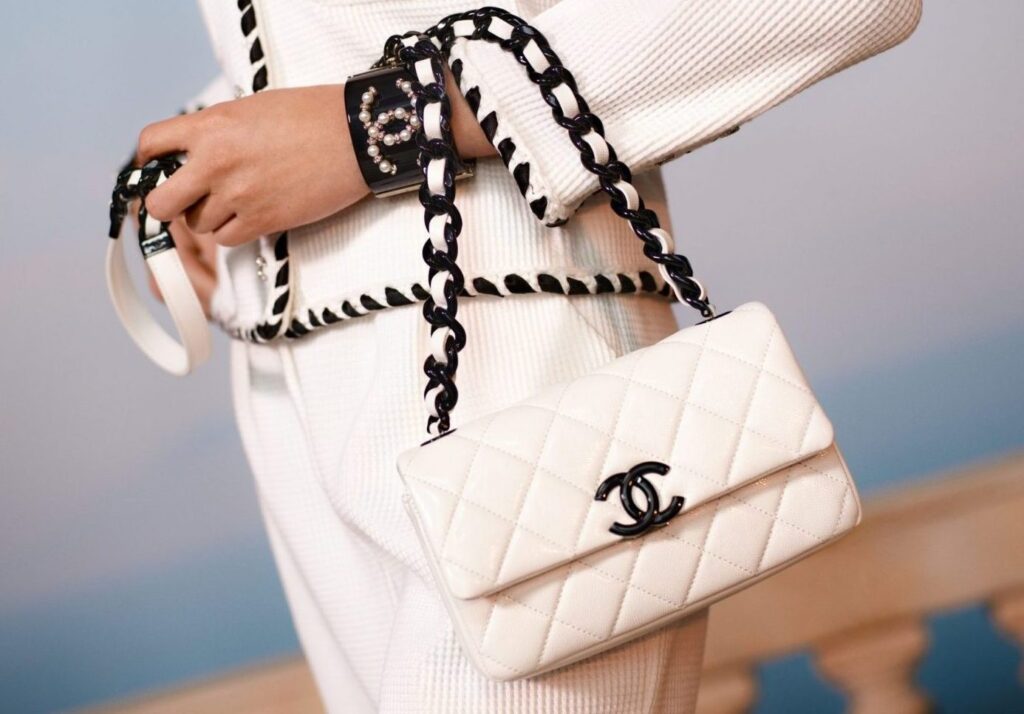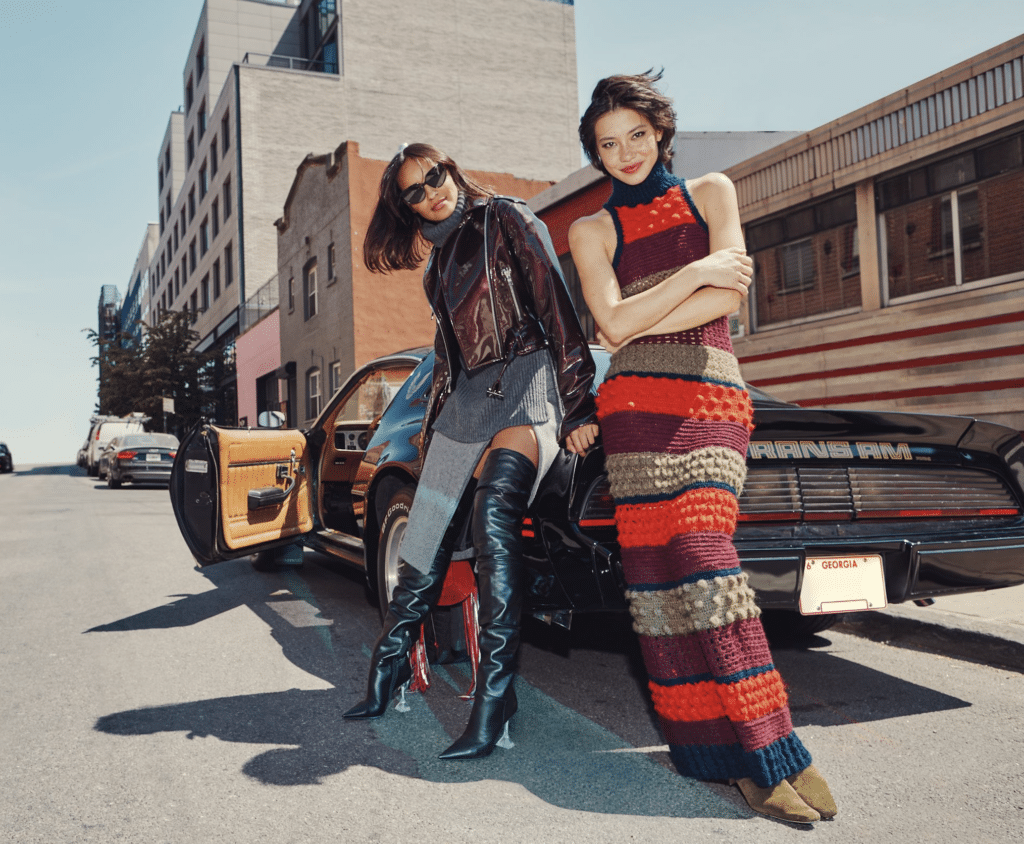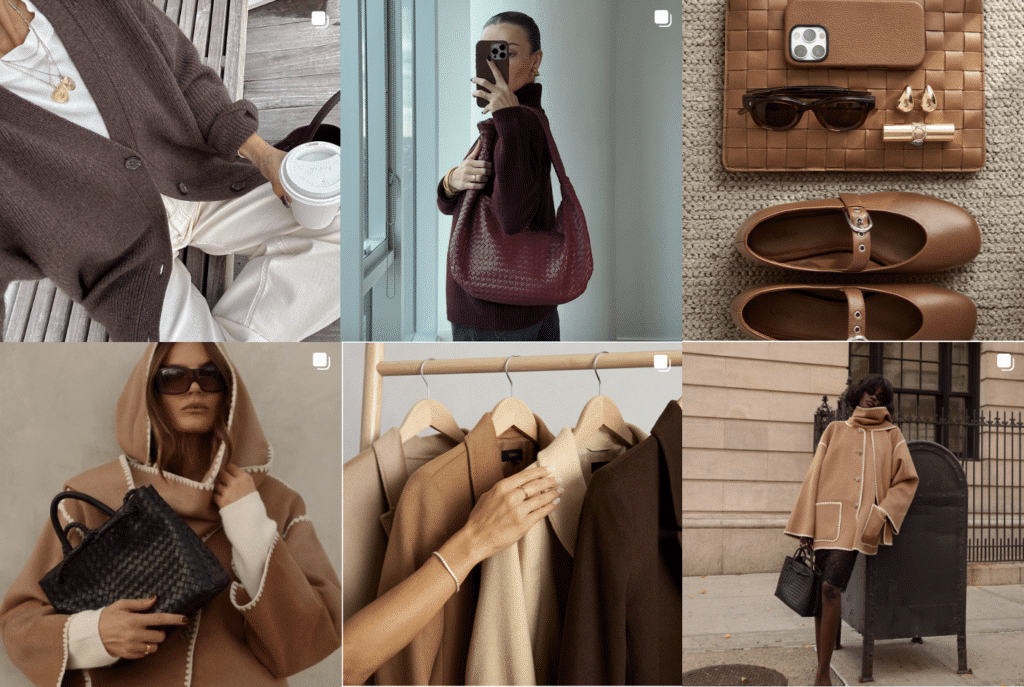When it comes to runway collections, many major fashion publications and big-name influencers omit a significant element from their coverage: The fact that they are essentially paid in exchange for runway show coverage and editorial placement. The editors behind some of the industry’s most prominent and influential publications and digital presences are consistently compensated by brands – by way of vacation-like getaways and expensive gifts – to write runway show reviews, or better yet, to feature brands and their collections in an array of alternative advertising formats, such as social media.
While media establishments like the New York Times, the Wall Street Journal, the Washington Post, and Women’s Wear Dailyhave longstanding policies of not accepting free travel or accommodations for their editors/critics, that is certainly not the norm. On the heels of the recent stagings of the Resort 2017 and couture collections, TFL took an exclusive look at the often rampant violations of federal law associated with the industry’s coverage of these often-over-the-top runway show events and the larger practices of wrongdoing being perpetrated by fashion publications, editors, journalists, and critics, alike.
As we told you in Part I of this series, influencers appear to consistently run afoul of federal law by failing to disclose sponsored posts and advertisements. However, there are arguably more significant violations at play even further up the fashion totem pole, and they involve some of the industry’s most well-read publications and high trafficked websites, and the industry’s most celebrated design houses. Such ethically and legally questionable tactics are clearly demonstrated in connection with the Resort 2017 and seasonal couture runway shows.
The Federal Trade Commission’s Rules
The Federal Trade Commission (“FTC”) is an independent government agency tasked with promoting consumer protection, and eliminating and preventing anticompetitive business practices. Established in 1914, the FTC garners its investigative and enforcement authority largely as a result of the FTC Act, a federal law that governs the publication of commercial messages and prohibits the utilization of unfair or deceptive acts and practices in the market. The FTC Act states that an act or practice is deceptive if there is a material misrepresentation or omission of information that is likely to mislead consumers acting reasonably in the circumstances. So, when a celebrity, influencer, editor or journalist is compensated (with money, free clothes or other perks) to endorse or promote a product or brand outside of a traditional advertising medium, the parties must disclose this to consumers, usually by way of “#Ad,” “Ad,” or “Sponsored.”
It is worth noting that the FTC is adamant that while certain practices may be obvious to those operating within a given industry, they cannot be assumed to be similarly obvious to the average consumer. In accordance with the law, “An act or practice is deceptive if it misleads ‘a significant minority’ of consumers. Even if some readers are aware of these deals, many readers are not. That’s why disclosure is important.”
The Problem with Pre-Season
Enter: Brands’ Resort/Cruise and Couture collections. The coverage of these special, pre-season shows is often questionable due to deficiencies in journalistic ethics standards and rampant FTC violations in connection with such coverage by an array of the industry’s most prominent publications. For some background: Pre-season – and in some cases, couture – collections tend to be presented in far-flung locations, and oftentimes, amount to mini-vacations, complete with accommodations, activities, and gifts for attendees, a portion of which are a brand’s biggest clients. This year, Chanel, for instance, staged its Resort 2017 show in Cuba. Louis Vuitton flew to Brazil. Gucci took over Westminster Abbey in London, and Dior set up shop at Oxfordshire’s Blenheim Palace.
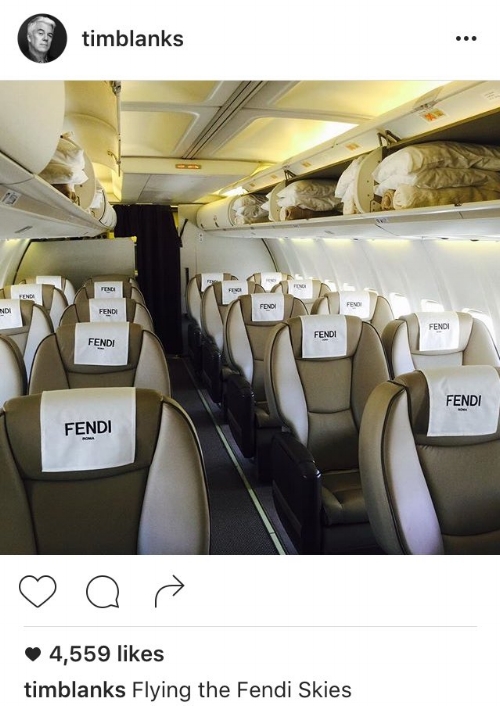
Far from merely taking the form of runway shows, these pre-season events are often lavish weekend-long affairs. As Vogue Runway director Nicole Phelps noted on the heels of Louis Vuitton’s Resort 2017 show in Rio: “There were 514 local and international guests arrayed on the [Niterói] museum’s spectacular patio this afternoon … Some of them had already seen the Niterói from above on helicopter tours of the city. Out-of-towners began arriving in Rio as early as Thursday, and Vuitton kept them busy with everything from trips to Corcovado to paddle board lessons.” In addition to being detailed in articles, these seasonal trips – and the runway shows that come with them – are routinely documented on editors’ and influencers’ Instagram accounts.
Looking beyond the glitz and glamour of it all, what the average individual might not be able to garner from the runway show reviews and/or industry insiders’ Instagram coverage is that the many perks tend to be part of nearly all-expenses-paid weekend-long affairs, a fact that could prove to be both ethically and legally problematic. In lieu of proper disclosures, such large-scale marketing endeavors could leave editors, critics, celebrities, and influencers running afoul of the FTC Act.
Consider the Chanel Cruise show that was held in Havana, Cuba last month. Editors from nearly every major fashion publication, including various Vogues, Marie Claire, Interview, Business of Fashion, and Glamour, among others, were in attendance, as were an array of bloggers/influencers. As Chanel’s creative director Karl Lagerfeld told New York Magazine’s Amy Larocca, “We brought 700 people to Havana.” (Notice he did not say, “700 people came to Havana.”). Larocca described the scene at the Hotel Nacional, where many of the show’s guests, including private clients and fashion editors, were housed. “Everyone’s been given a special-edition Chanel fedora, and everyone smells vaguely of Chanel Chance, the shower gel left in each guest’s room … There are endless cars and vans coming and going, shuttling everyone around on rotating tours of the Museo de Revolución, the streets of the old city, Ernest Hemingway’s house on the outskirts of town, and a warehouse funded by the Cuban government and full of the country’s promising contemporary art. There’s an evening trip to the Tropicana cabaret.”
InStyle’s fashion director, Eric Wilson, recounted: “Chanel had booked rooms in no less than five hotels for a production that would include hundreds of outlandishly dressed guests being ferried to the show in Havana’s famously retrofitted and antiquated taxi cabs, tours of the revolutionary sites, literary odes to Hemingway, a visit to the Tropicana nightclub, and finally a blowout party at la Plaza de la Cathedral.”
This is all to say: Chanel (or whatever house’s show is taking place) had flown-and-housed, wined-and-dined its guests, including many editors and critics, who are then expected to take in the collection in an arguably unbiased manner (as opposed to merely penning a purely sponsored post) a few days later.
The same can be said of many couture presentations, as well. Take Dolce & Gabbana and Fendi, for example, which recently staged shows in Naples and Rome, respectively. As indicated by an array of Instagram photos, the shows were similarly extravagant events for editors, critics, bloggers, and clients. Business of Fashion editor-at-large, Tim Blanks, for one, posted a photo of a Fendi-branded plane, which chartered show-goers to Rome for the show. At the time of publication, the corresponding BoF review of the collection did not include a disclosure as to Blanks’ travel/accommodations.
Decadent Without Disclosure
The widespread “pampering” at play could be problematic for a few reasons. For one thing, there is the overarching question of how it affects a journalist, editor and/or critic’s objectivity in connection with his/her coverage of the collection. It should be lost on no one that … well, almost no one gave the Chanel Resort 2017 collection a negative review (the same can largely be said for reviews of Chanel’s previous outings in Dubai, Austria, Seoul, etc.). For instance, of the Chanel collection, with its very literal and cliché Cuban references, International Vogue’s Suzy Menkes wrote: “The collection had a powerful sense of freedom, with calf-length skirts swinging to the music and showing the audience patterns of juicy flowers or those racy, colourful cars.” For BoF, Blanks penned: “The designer showed clothes that idealized the essence of cruisewear, something light and pretty to wear in holiday heat and humidity.”
Neither of these reviews included disclosures indicating that the critics’ travel and lodgings were paid for by Chanel when the “reviews” were first posted.
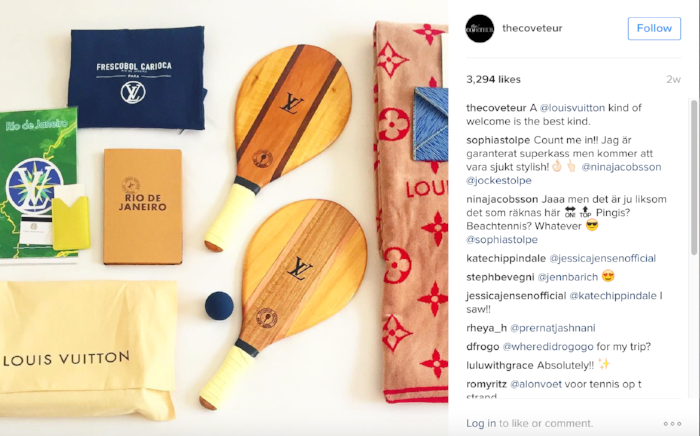
Yes, the reviews of nearly all of the editors/critics in attendance were somewhat uniformly glowing, but how could they not be? A journalist or critic simply must feel at least some sense of obligation to a house (particularly when said house is an advertiser, which is another issue entirely) to skew his review (consciously or otherwise) to an extent in light of such pampering. With such knowledge at hand (although the majority of magazine readers and/or fashion consumers do not possess such insider information), expecting even a reasonably objective review is arguably absurd. This is the ethically problematic aspect.
But what about the legal one? Well, the gist is this: In exchange for the free trip, brands expect their guests to promote the event, the collection, and the brand, itself, in their reviews, in subsequent editorials, and on social media (by way of pre-determined hashtags, such as #CocoCuba and #ChanelCruiseCuba). The problem: Such advertising – whether it be coverage on Vogue or some of the industry’s most prominent editors’ Instagram accounts – is rarely packaged in a way that allows consumers to easily identify it as advertising, something that could run afoul of FTC rules. As for how we know that at least some of the disclosure-less coverage likely runs afoul of the FTC Act, well, the FTC tells us so.
The regulator has provided the public with an array of examples of what it deems to be FTC Act violations, and a few of those examples very closely mirror the situations at hand.
One example of that falls out of bounds of its rules, according to FTC: “If a motion picture studio approached individuals outside [a movie] theater and offered them free tickets if they would review the movie afterwards” and that arrangement is not “clearly and conspicuously disclosed” in connection with the moviegoers’ reviews, their reviews will be deemed a violation of the FTC Act. If that arrangement sounds vaguely familiar, it should. If we replace moviegoers with Resort show-goers and swap free movie tickets for free plane tickets and hotel rooms, we have a very similar situation.
Another example from the FTC suggests similar results for disclosure-less coverage of runway shows. Consider the following, courtesy of the FTC: “A college student who has earned a reputation as a video game expert maintains a personal blog where he posts entries about his gaming experiences … The manufacturer of a newly released video game system sends him a free copy of the system and asks him to write about it on his blog. He tests the new gaming system and writes a favorable review. Because his relationship to the advertiser is not inherently obvious, readers are unlikely to know that he has received the video game system free of charge in exchange for his review of the product, and given the value of the video game system, this fact likely would materially affect the credibility they attach to his endorsement. Accordingly, the blogger should clearly and conspicuously disclose that he received the gaming system free of charge.”
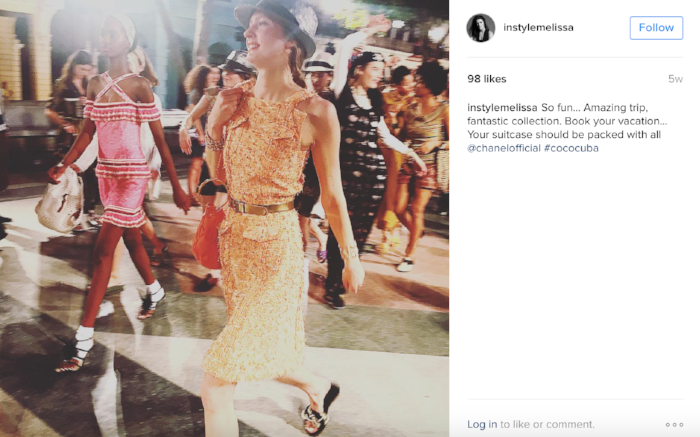
Swap in social media stars and editors for the video game blogger and swap a free trip for a free video game system and we have another match. (Note: if we are to play devil’s advocate and assume that brands do not outright ask editors to write reviews of the shows (as the video game company did in the FTC’s example), that is not necessarily a deal-breaker. There is something of a quid-pro-quo relationship at issue between brands and editors in connection with such runway events, especially if we take industry norms/practices into account, and thus, a relationship and violation almost certainly still exists.)
One more bit of insight from the FTC: “If incentives would materially affect the weight or credibility of [an endorser’s endorsements], they should be clearly and conspicuously disclosed, and the advertiser should take steps to ensure that these disclosures are being provided.” Certainly free trips, free bags, and the like serve as a strong incentive for editors to give good reviews and/or favorable coverage to a brand and its collection. This is especially probable given the fashion industry’s notorious practice of banning editors/critics who publish poor reviews. Thus, such coverage requires disclosure.
So, What?
There is more to this rampant industry-wide practice than just free trips and free bags. Without disclosures indicating what goes on behind thee scenes of their coverage of such collections, consumers may be misled. In other words, without proposer disclosures, average consumers are almost certainly being deprived of necessary information/context to allow them to weigh the information they are receiving adequately, and this is exactly what the FTC – a consumer protection agency – aims to prevent. While industry insiders know the ins-and-outs of how such these shows tend to work, the average consumer certainly does not.
In FTC terms, the influencers at play here – whether they be editors, critics, bloggers, or celebrities – are receiving a form of compensation in exchange for endorsing/promoting the brand. (The FTC has made it very clear that compensation is not limited to money; it may take the form of free trips, free clothes, discounts, and likely even borrowed clothing, among other things.) This means that legal issues may be afoot when these individuals write reviews or post photos on social media in connection with/in promotion of such brand-sponsored events without including a disclaimer shedding light on the workings of the arrangement. According to the FTC, “if there’s a connection between an endorser and the marketer that consumers would not expect and it would affect how consumers evaluate the endorsement, that connection should be disclosed.”
THE BOTTOM LINE: Posting promotions/endorsements – which may be as simple as a posting an Instagram photo of a garment or accessory without any language at all, according to the FTC – that are born from a connection between the endorser and the underlying brand without proper disclosure amounts to a violation of the FTC Act if such endorsements “mislead ‘a significant minority’ of consumers.” And according to the FTC’s guidelines, “Advertisements or promotional messages are deceptive if they convey to consumers expressly or by implication that they are independent, impartial, or from a source other than the sponsoring advertiser – in other words, that they are something other than ads.”
In order for such editors and co. to avoid potential FTC liability, they are legally obligated to disclose their connection with the brand. #Sponsored seems like a fitting disclosure for social media posts. A disclaimer to the effect of, “Chanel provided all accommodations in connection with [insert publication name]’s coverage of the Resort 2017 collection” or some variation thereof likely works for articles and reviews. You will notice that none of the reviews for any of pre-season collections include any form of disclosure.
*UPDATED: BoF updated its Chanel/Cuba review to include a retroactive disclosure (without noting the update) that Tim Blanks attended as a “guest of Chanel.” A number of other reviews on its site for which editors were “guests” of the brands remain undisclosed, including the review of Fendi’s Fall 2016 couture show review.







